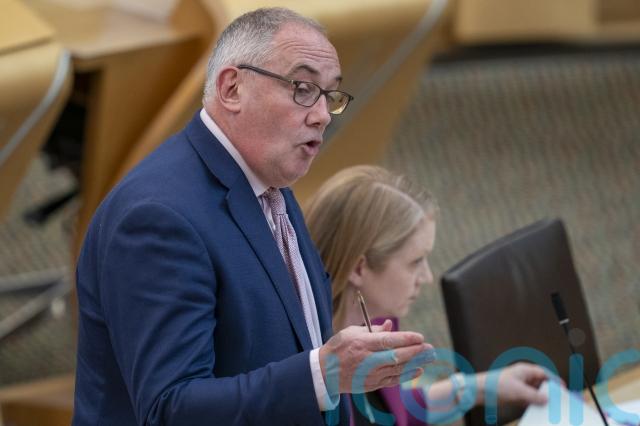
Rents will be capped at a maximum of 6% in control areas under Scottish Government plans.
The Housing (Scotland) Bill was lodged earlier this year, and the legislation allows ministers to create rent control zones following a recommendation from local councils.
The Bill initially did not set out the size of the caps, but housing minister Paul McLennan on Thursday said rents would not be able to rise higher than 1% above the rate of inflation as measured by the Consumer Price Index (CPI), up to a maximum of 6%.
But the Scottish Greens – who were in government when the Bill was lodged and played a key role in its creation – have criticised the size of the caps.
Mr McLennan said: “This amendment responds directly to calls for greater certainty and will offer more clarity to tenants, landlords and those who invest in and develop rented homes.

“Setting out the cap in this way, with CPI as its basis, allows for a reflection of the costs of landlords to offering a property for rent, while offering protections to tenants in terms of limiting more significant rent increases.”
Caps will be in place between tenancies, as well as throughout, in the selected zones, but Mr McLennan said there will be exemptions to allow certain properties to avoid the caps.
A consultation will take place this spring on how exemptions should be applied, but the minister indicated in Holyrood that mid-market rent properties are one such option.
Green MSP Maggie Chapman said her party does not believe the formulation will “tackle the significant unaffordability of rents in many areas across the country”.
She added: “It does not give tenants in the private rented sector the stability they have been promised.”
Ms Chapman went on to ask the minister how caps pegged to the rate of inflation make rent more affordable.
Mr McLennan replied: “It’s important that any design of rent controls considers the longer term picture, since rent growth can be above as well as below inflation.
“We consider that allowing some margin over inflation, such as 1% as has been mentioned, would give investors some assurance that over the long run, any periods when growth is below inflation may be balanced out with periods where rents may grow above inflation.”
Campaign group Living Rent welcomed the assertions the caps will apply in between tenancies, but also hit out at their size.
Housing Minister @PaulMcLennan7 has announced a proposed rent cap as part of the Housing Bill.
This will limit rent increases in areas where rent controls apply, protecting tenants and supporting people to access secure and affordable tenancies.https://t.co/dUKIHEMoRi pic.twitter.com/261xBK1A5q
— Scot Gov Fairer (@ScotGovFairer) October 31, 2024
Its campaign chairwoman Ruth Gilbert said: “Setting a cap at above inflation – even by just 1% – will bake in above-inflation rent increases for tenants, and severely weakens the rent controls we so desperately need.
“We will continue to fight for rent controls that bring out of control rents down, not just limit future increases.”
But Propertymark, a trade body for property professionals, said limiting rent increases between tenancies “removes any incentive for landlords to invest or upgrade properties”, adding that “further changes” are still required to the Bill to “give more confidence to letting agents and their landlords”.
Anna Gardiner, policy adviser for Scottish Land & Estates, said: “The Scottish Government has acknowledged the value of the private rented sector as a key housing provider, which is welcome.
“Offering a suitable environment that incentivises homeowners to improve and expand the housing stock is important for both landlords and tenants. In rural areas this is absolutely crucial.
“While the proposed amendment does not remove the rent control measures, it goes some way to at least ensuring that those with properties in rent control areas will now be able to increase rents to a degree and reflect inflation.
“Investment in the private rented sector is beneficial for tenants as it means better quality housing and more homes being made available as rental properties.
“We would urge the government to clarify where exemptions may apply and to engage with the private rental sector to reduce unnecessary cost and bureaucracy.”
Subscribe or register today to discover more from DonegalLive.ie
Buy the e-paper of the Donegal Democrat, Donegal People's Press, Donegal Post and Inish Times here for instant access to Donegal's premier news titles.
Keep up with the latest news from Donegal with our daily newsletter featuring the most important stories of the day delivered to your inbox every evening at 5pm.